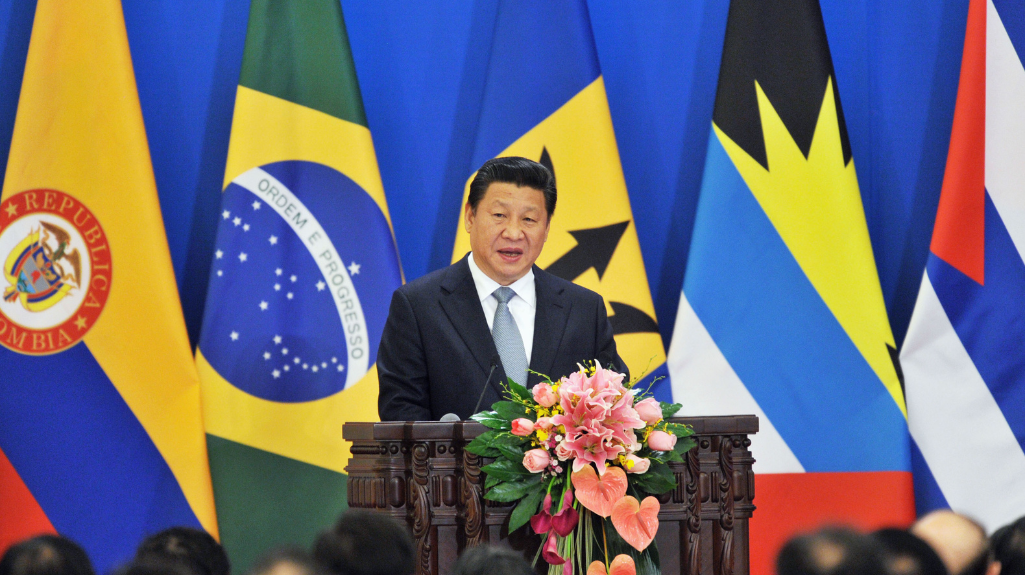The United States and Spain: Building Bridges across the Atlantic
The United States and Spain: Building Bridges across the Atlantic
Washington and Madrid should sieze on the chance to collaborate on Latin America policy. "[W]ith foresight, nuance, creativity, and a little good fortune, this is an emerging partnership whose time may very well have come," writes Farnsworth.
Change has come to Washington. Spirits are high; expectations are higher. U.S. foreign policy is now under reconstruction. Old grudges are being cast aside, friends are being restored and alliances are the order of the day. U.S. relations with Spain are directly affected. After several years of strained relations stemming from differences over the Iraq War, the two nations appear headed for rapprochement. This is a significant development, long overdue, and could well have important implications for the conduct of policy in the Americas.
At the presidential level, relations have been in deep freeze since Spain haphazardly withdrew its forces in Iraq after the first election of Prime Minister José Luis Rodríguez Zapatero. Deep differences on Cuba also have worked against a spirit of collaboration. As a result, the policy imperative in recent years has essentially been to manage the bilateral relationship, rather than to build it for mutual benefit. In fact, Zapatero would not have been invited to Washington for the G20 meeting in November were it not for the important facilitating role of French President Nicolas Sarkozy to procure an invite.
Nonetheless, even with the deeply personal differences between their two respective leaders, Spain and the United States maintained an important day-to-day relationship built on the reality of their NATO alliance, the maintenance of U.S. military bases in Spain that have proven critical to the conduct of affairs in Iraq and Afghanistan, and impressive levels of two-way direct foreign investment, particularly in financial services and energy.
This is a foundation on which to build further. With nuanced leadership and concrete steps to establish a common agenda, the United States and Spain could well become effective partners in numerous areas as the baggage previously weighing down the relationship is lightened.
In fact, irritants will be minimized by the Obama Administration in the course of events. As the Iraq conflict winds down, that particular issue will naturally fade. The new U.S. administration may also soften Cuba policy, including restrictions on visits, remittances and exchanges, although the embargo, enshrined in U.S. law, will likely remain for the foreseeable future.
In other words, the filter of irritants through which virtually all other issues in the bilateral relationship have been viewed until recently will be reduced—if not removed. As U.S. relations with Spain become focused less and less on whether we agree with Spain’s Iraq or Cuba policy, with appropriate foresight and appreciation for the upside of the relationship on both sides of the Atlantic, relations could well be focused more and more on areas of mutual opportunity.
Contacts between the Zapatero government and the new administration were made at senior levels even before the inauguration, and a fresh start is on tap, particularly if Spain is forthcoming on additional troops for the NATO mission in Afghanistan. For its part, the United States should reciprocate by actively pushing for Spain to join the G8.
Areas for further collaboration abound, notably in forging a deeper partnership on Latin America. Once a region that bitterly divided the two nations that fought the Spanish American War in 1898, Latin America is now a region where policy coordination could offer significant benefit. Even in the best of times, no two nations always see eye to eye. Commercial and political conflicts have arisen from time to time between the U.S. and Spain in Latin America. But the two nations also have broadly consistent interests in the region. Both have been impacted by the wave of populism that has coursed through the region, and both have watched as policy and commercial interests have been impacted. Neither has been able to do much to alter events. But by working together, they would conceivably be able to have a more positive impact than either has been able to have working alone.
In particular, the commercial agenda cries out for a joint approach, particularly on investment climate issues and energy frameworks including alternative energy and climate change. Just like their U.S. counterparts, Spanish companies require educated workforces, stable regulatory environments, and rule of law and dispute resolution mechanisms that work. They need strong macroeconomics, as well as labor codes that protect workers while reducing existing incentives for underemployment. They need access to capital, infrastructure, and personal security on the streets where they work. Perhaps most importantly, they need to know that once they make an investment, no matter how large or longstanding, the government of the day will not swoop in and take their property based on political whim or financial crisis.
Working together with their private sector counterparts, the U.S. and Spanish governments could make a potent difference if they were to band together to improve investment climates across the region. Of course, the real beneficiaries of such actions would be Latin Americans, as even in a distressed global economy, direct foreign investment would continue to grow, jobs would be created, and countries would become more competitive visà-vis their Asian and other counterparts. Useful collaboration could also be encouraged in the promotion of corporate social responsibility with the expectation that Latin American companies would also begin to develop a culture of philanthropic activity and community engagement.
Energy and global climate change are also significant areas for cooperation. Spain is a leader in the development of alternative energy, and as the world looks to meet its energy needs in an increasingly environmentally friendly manner, there is significant room for collaboration with the United States. In fact, one of the recent successes of U.S. policy in the Americas has been the establishment and development of an energy dialogue with Brazil, which has become a pillar of U.S.-Brazil relations. Ths initiative will likely be continued and, given the Obama Administration’s avowed interest in alternative energy sources and global climate change actions, could well be expanded. The same could be done with Spain.
Beyond the commercial agenda, the United States and Spain should consider lending their combined voices to a robust defense of democratic principals in the Americas. In some countries such as Nicaragua, steps have already been taken that have the effect of hollowing out democracy. Spain, through the Ibero-American Summit process, and the United States, through the Summit of the Americas, both have the ability—and the credibility (Spain perhaps uniquely so given its recent history)—to stand in defense of democratic principles and governance. With like-minded Latin American leaders, both can offer strengthened support across the region.
On the security front, both nations have been directly scarred by global reach terrorism, on 9/11 and 3/11 respectively. Both have also been hurt by the ravages of illegal narcotics trafficking; Spain has the highest per capita consumption of cocaine in the world. The two countries have concrete interests in working together to combat global terror and in working to ensure that Latin America remains inhospitable both to terrorists and also to their state sponsors. They can also collaborate even more closely, along with Latin American partners, to fight the illegal narcotics trade.
The author Graham Greene wrote in The Power and the Glory that there are unique moments in childhood when the door opens and lets the future in. It is quite possible that, in the context of the United States’ relationship with Spain, we have now arrived at just such a time. Expectations must be managed, and there needs to be a realistic understanding on both sides of the Atlantic as to what is possible and what is likely. But with foresight, nuance, creativity and a little good fortune, this is an emerging partnership whose time may very well have come.








